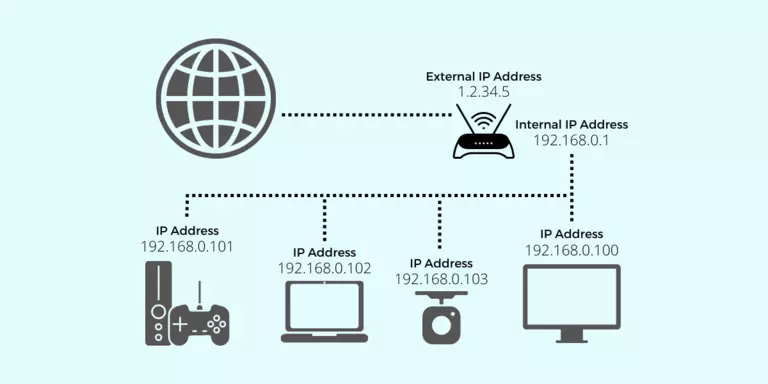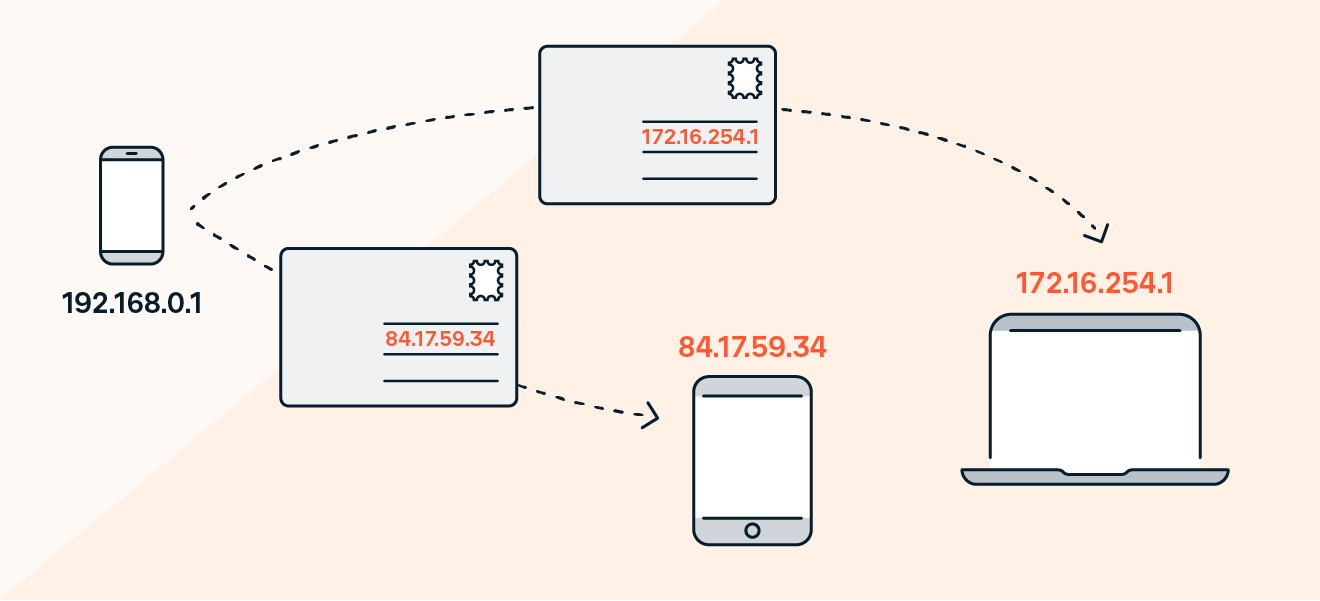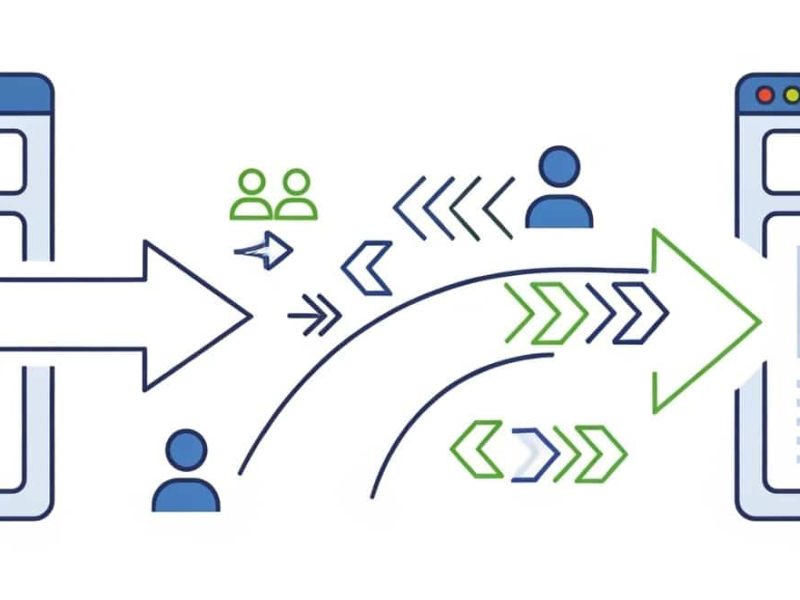What kind of IP address to consider for a website is a question and concern that webmasters, website creators, and developers encounter on a daily basis. How can we clearly and succinctly respond to the query, “Does IP affect SEO and Google Rankings?” Follow us through to the conclusion of this blog post, and we’ll demonstrate.
Three terms are commonly used in the web hosting industry: Shared IP, Dedicated IP, and Proxy IP. They all perform the same function, which is to “guide” the visitor’s browser to the server where your website is hosted. Why are they split up into these three groups if they all perform the same actions? Which IP is best for your website and what are the drawbacks and advantages of each one? We hope to cover all of this information in this post, including what an IP address is, how it functions, and how using a different IP address affects your website. Now let’s get going!
What is an IP address?
We need to define an IP address before delving further into the rabbit hole. Whether they are aware of it or not, everyone has seen an IP address. IP stands for “Internet Protocol,” and domain names use these addresses to direct users to their websites and display their content. DNS is used by IP addresses. Consider the DNS system as a huge registry that houses every domain name along with its corresponding IP address.

Imagine a phone booth with an enormous phone book that has every person’s number on the globe inside! By allowing users to choose a “name” for their website rather than having to memorize a long string of numbers and enter it into the browser in order to view it, the DNS system aims to make people’s lives easier. Without DNS, to access your preferred search engine, type something like “125.241.68.201” in your browser instead of “google.com,” which is much more difficult to remember!
There are two kinds of IP addresses you might encounter:
IPv4 – 125.241.68.201
IPv6 – 2001:0db8:85a3:0000:0000:8a2e:0370:7334
Just when you thought IP addresses were hard enough, there are now two varieties, the more peculiar of which is the second. You might wonder why a different kind of IP was required. The short answer is that while the IPv4 count rapidly declined (yes, there is a cap on the number of IPv4 addresses; currently, there are 4,294,967,296 addresses in use), the internet grew extremely quickly. Some astute individuals said, “Hey, let’s think of new IP addresses that will never go out of stock!” as this scarcity began to take shape. And so they actually did! The IPv6 type was created using this concept, and there are 340 trillion trillion IP addresses available. That’s a 34 followed by 38 zeros, for those who are unable to comprehend the number!
That’s the technical side of IP addresses, and hopefully you now have a better understanding of what they are used for. Let’s now move on to the fascinating information you discovered:
Is a dedicated IP address worth it!?
Let’s define some of the IP address types that the web hosting service uses:
Dedicated IP
Numerous IP addresses can be assigned to a web hosting server for various functions, such as web proxies, malware protection, email, CDN, and so on. Your domain name and all associated services are assigned their own IP address on the server; this IP address is referred to as “dedicated.”
When you use a Cloud SSD VPS or Dedicated CPU solution, you will usually have a dedicated IP address. In the hosting industry, these solutions are regarded as “premium,” and one of their benefits is the inclusion of a dedicated IP address.
For an extra fee, some hosting companies allow you to set up a dedicated IP address in a shared environment. You’ll see why we at ASPHostPortal have chosen not to activate this option if you continue reading!
Shared IP
The IP address you will use the most frequently is probably a shared one. With the exception of the fact that other websites and services also use it, it functions exactly like a dedicated IP address. The advent of virtual hosting some time ago made the entire process possible. Since then, web hosting has never been more flexible and accessible, and because of this amazing technology, almost anyone can begin their online journey for a very low cost.

The term “shared IP address” shouldn’t scare you. The situation is not as dire as many online articles suggest, which entirely ignore shared IP addresses because they are thought to be “malicious” or “insecure.” To learn more about the shared IP address in our comparison section, continue reading.
Proxy IP
Most of the time, a proxy IP address is a shared IP address that content delivery networks (CDNs) like Cloudflare, Sucuri, or Ezoic use to provide their users with a range of services like security, speed, optimization, etc. Normally, you would need to use their nameservers in order to obtain this IP address. When you implement the new nameservers, you will begin using the proxy IP address, even though you may have used the IP address of your current host at first. These IPs might occasionally cause you problems because your present host’s firewall might be blocking them. We make sure that all frequently used IP ranges of third-service providers are permitted on ASPHostPortal so that our clients can use them without restriction.
Does SEO depend on your website’s IP address? Shared vs. dedicated IP
You’ve reached the most interesting and contentious section of the article: the shared vs dedicated IP debate! It’s common knowledge on the internet that a dedicated IP address raises your website’s rating and speeds it up.
SEO
There isn’t any concrete proof or an official declaration from search engines to support this claim. Furthermore, a Google employee in the Webmaster Trends Analytics division attested to the fact that owning a dedicated IP has no bearing on rankings, and his advice was spot on:
“It’s widespread for sites to be on the same IP address. That’s the way the internet works. A lot of Content Delivery Networks (CDN) use the same IP address as well for different sites, and that’s also perfectly fine.”
John Mueller
“So what I recommend doing here is trying to take a step back and focus on fewer sites and make them strong, good, and unique. Populate them with great content and unique products, so then you don’t have this selection of many sites that are essentially doing the same thing.”
John Mueller
It’s time to stop worrying; your IP address won’t affect your SEO or Google rankings; instead, the caliber of the content you create will determine these metrics.
Recall that we promised to assist in addressing the query, “Does my IP address affect SEO and Google Rankings?”
You received the lengthy response, but just to be thorough, here is the short response as well: Not at all!
Web Hosting Speed
After dispelling the myth about “Does IP affect SEO?“, let’s move on to the next widely held belief, which holds that a dedicated IP speeds up the website. Since it is very difficult to stop ASPHostPortal once it gets going, we will be giving you even more useful information!
To put it gently, this assertion is wholly ridiculous! Website speed is such a complicated metric that depends on so many factors; people would go crazy if we had to include dedicated IP in the mix! At ASPHostPortal, we’re passionate about speed and performance, and we’ve written numerous articles outlining the best practices for our clients’ website optimization.
You can be confident that your website will function quickly and smoothly even though it is using a shared IP address if you are using one of our shared hosting plans. A dedicated IP address offers no speed advantages at all. Furthermore, our technical hosting experts will be pleased to examine your website, optimize it, and make several recommendations for actions you can take to improve its performance!
Emails
You might be wondering why, in theory, shared IP addresses and dedicated IP addresses accomplish the same thing, but in practice, the hosting community views them as two distinct entities. What specific purpose does a dedicated IP serve? In our experience, clients on Cloud SSD VPS or Dedicated CPU solutions have found value in having a dedicated IP address. The results of outgoing messages relayed through that IP are completely within their control. To put it mildly, managing a shared IP address that is in charge of mail delivery is a nightmare. There could be thousands or even hundreds of users sending emails. Everyone will be in trouble if one of them is able to report the IP address as spam.

It will be useful to have a dedicated IP address at this point. A dedicated IP address is sufficient to guarantee a seamless delivery of emails if your business operates legally and depends heavily on them. In order to address this ever-increasing email problem, we at ASPHostPortal have developed a service called SpamExperts Outgoing Filter, which promises to lower spam, enhance deliverability, and virtually eliminate the need for a dedicated IP address. Your outgoing messages will go through SpamExpert’s SpamCloud server when you host your websites and emails on our shared servers; the “shared IP address” will not be involved in the delivery process.
SSL
Ten years ago, installing an SSL certificate on your domain required a dedicated IP address. SSL certificates were not as common back then, and most websites did not even use them throughout. They were also not necessary unless you ran an online store. To guarantee that the transactions and credit card information of the customers would be encrypted, they added an SSL to their checkout page.
Virtual Hosting enables you to install an unlimited number of SSL certificates on a single IP address thanks to the SNI system.
Fact or Myth – Does IP Address Affects Your SEO Score?
That’s it! All the myths surrounding dedicated IP addresses have also been disproved, including the one about whether IP affects SEO. Let’s review every point raised regarding dedicated and shared IP addresses:
- The only difference between a dedicated IP address and a shared IP address is that a dedicated IP address is only used for one domain or service. Everyone on the server uses the “shared” at the same time.
- Google search rankings and SEO for your website are unaffected by using a dedicated IP address.
- The speed of your website won’t increase with a dedicated IP address. Numerous factors, including properly optimized code and content as well as server configuration, affect speed.
- If you want to manage and control the outgoing emails from your domain, a dedicated IP address comes in handy. You won’t have to worry about this if you use ASPHostPortal because we utilize an OutBound Spam Filter that takes the IP address of the server out of the picture.
- In the present era, using a dedicated IP for an SSL certificate is outdated and superfluous. With a shared IP address, you can effortlessly install an unlimited number of SSL certificates for your domains thanks to SNI.
We hope that this post helped you realize that the things that matter most to you, your website, its content, and your overall online presence, should take precedence over worrying about what your IP address is.
If you’re looking for fast and reliable web hosting solution, then trust your site with ASPHostPortal. Our fully featured hosting already includes
- Easy setup
- 24/7/365 technical support
- Top level speed and security
- Super cache server performance to increase your website speed
- Top 9 data centers across the world that you can choose

Andriy Kravets is writer and experience .NET developer and like .NET for regular development. He likes to build cross-platform libraries/software with .NET.




